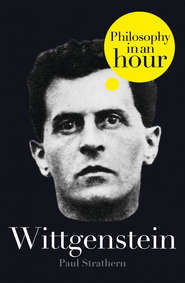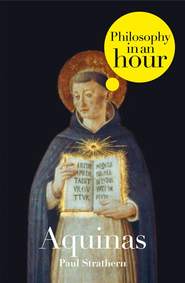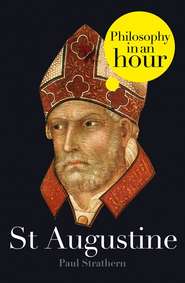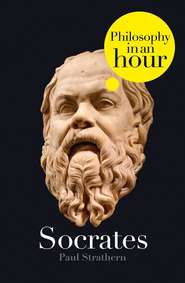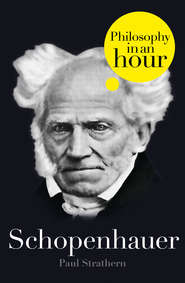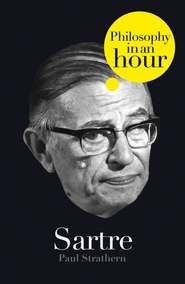По всем вопросам обращайтесь на: info@litportal.ru
(©) 2003-2024.
✖
Berkeley: Philosophy in an Hour
Настройки чтения
Размер шрифта
Высота строк
Поля
Similarly, Berkeley’s idea that the world itself was maintained by the continuous perception of an all-seeing God is certainly not supported by experience. It is metaphysical: that is, it goes beyond any physical knowledge we are capable of discovering. This leaves Berkeley in the curious position of being both a thoroughgoing empiricist and a thoroughgoing metaphysician – an apparent self-contradiction. Yet this self-contradiction lies at the very heart of our present worldview. Most modern philosophy, and all scientific thought, finds itself in a similar position. Before we can proceed to a rational or scientific explanation of the world, we must first make several far-reaching assumptions that are not derived from experience, and are thus metaphysical presuppositions. For instance, we assume that the world is consistent. From this we go on to assume that it conforms to the laws of logic as we conceive them. Likewise this leads us to believe that this reality in some extremely precise and intimate way conforms to mathematics. A similarly important assumption we make is that the world somehow ‘matches’ our perception. What possible experience could we have that would reveal to us that our perceptions have anything whatsoever to do with what gives rise to them? (A blindfolded patient experiences an extremely sharp localized pain. This could be caused by a needle, an electrode, a bee sting, a drop of concentrated acid, and so on. Which is it? Which of these does his pain resemble? It doesn’t of course resemble any of them. It only resembles similar sensations, not whatever might have caused them.)
Other ‘obvious’ assumptions we make about our experience are equally unwarranted. Take one of the basic laws of logic, that of identity. This basically states that a thing is itself, and everything else is not that thing. A thing cannot be itself and also something else at the same time. We disobey this law every time we confront a work of art. A painting of a landscape, for instance, is viewed simultaneously as a landscape and as a piece of canvas daubed with coloured pigments. It may be argued that what we gain from aesthetic perception is not really knowledge. Even so, it remains an important component of the way we perceive the world. Every time we look at a picture, an image on a screen, or even words on a page, it involves a similar process. This is a central part of our experience, and it contradicts the laws of logic.
There is yet more damaging evidence against our all-but-unconscious precognitive assumptions concerning logical consistency and such. Even science itself must accommodate illogicality. The law of identity doesn’t break down only in aesthetic perception. Something surprisingly similar also takes place in modern quantum physics – which states that light can be viewed as either waves or particles. This defies logical consistency (a wave is simply a motion; a particle is an object). It has been argued that such exceptions simply serve to reinforce the general rule, where logical consistency is concerned. Whether or not this is the case, they certainly reinforce the notion that logical consistency is a metaphysical assumption – and, as such, no more (or less) supportable than Berkeley’s idea that the world is supported by the continuous perception of an all-seeing God.
Interestingly, this latter idea (or its equivalent) has a long pedigree in mathematics. The early Arab mathematicians, who advanced this field of learning almost single-handedly during the period between the decline of the Hellenistic world and the Renaissance, developed their own mathematical philosophy. This provided them with an intellectual and spiritual justification of mathematics. According to their philosophy, mathematics was the way God’s mind worked. And since God made the world, it was bound to work according to mathematics. By learning more about mathematics, they were learning more about the mind of God. This was both a profound and a beautiful idea – and as such it even resembled mathematics itself!
It is not difficult to discern the shadow of this metaphysical idea behind Berkeley’s idea of a world supported by God’s perception. If anything, this Arabic notion of mathematics actually informs Berkeley’s idea. How does God’s all-seeing continuous perception actually see the world? Why, in a way such that the world obeys the laws of his thought: that is, the laws of mathematics and science (or nature). Such laws are God’s perception. The Arab notion of mathematics was of course rooted in Islamic theology, but this didn’t prevent its adoption by Christianity. Indeed, it persisted long after Arab mathematics had been superseded by the European tradition, which was developed after the Renaissance by the likes of Descartes, Pascal, and Fermat. Berkeley’s eighteenth-century contemporary, Isaac Newton, certainly believed in it.
Only with the complete divorce of theology and science was this idea replaced. Modern mathematical philosophy dispenses with the idea of God, which leaves it in a curious situation. Without God, where does mathematics exist? And how does it exist? Is it simply our way of seeing the world? In other words, could there be another form of mathematics for beings equipped with a different perceptual apparatus? When a mathematician produces a new theory, has he discovered it or has he created it? Did it come into being for the first time in his head, or was it always there, somewhere, waiting to be discovered? In other words, would 2 + 2 = 4 be true if there was no one (even God) to think it? Extend that 2 + 2 = 4 to the ‘laws of nature’ and the enormity of the problem becomes apparent. These are the ultimate problems of reality. Berkeley’s solution to this problem may seem fanciful and far-fetched, but it at least answers these questions. Contemporary mathematical and scientific philosophers still find themselves in a quandary over this matter. Stephen Hawking even ends his Brief History of Time
Вы ознакомились с фрагментом книги.
Приобретайте полный текст книги у нашего партнера:
Приобретайте полный текст книги у нашего партнера:






